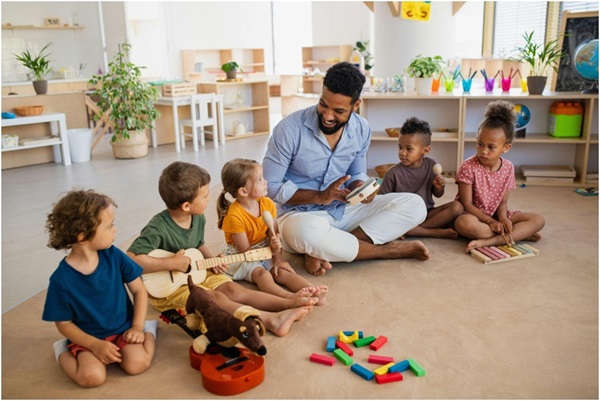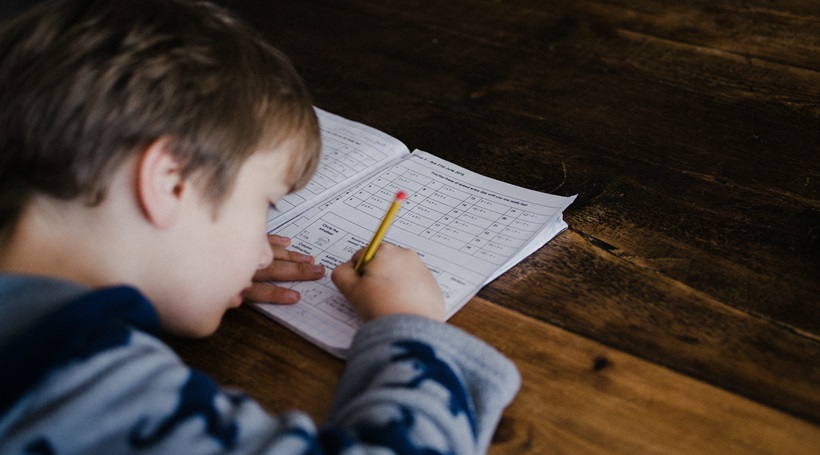The Montessori method in education is an alternative option for many parents that feel like they want something different from the standard and conventional model of schooling. Known for helping to develop independent, curious, and self-driven learners, this approach has continued to captivate educators, parents, and learners worldwide, offering a profound alternative to traditional schooling paradigms. Let’s take a look at why many parents are considering this option now more than ever.
Origins and Principles
The Montessori method was born out of Maria Montessori’s pioneering work in the early 20th century. A physician and educator, Montessori observed children closely, recognizing their innate desire to learn and explore their environment. She believed that traditional education stifled this natural curiosity and sought to create an educational approach that honored and nurtured it instead.
Central to the Montessori philosophy are several key principles:
- Child-Centered Learning: Montessori classrooms are carefully prepared environments designed to meet the developmental needs and interests of the child. Rather than adhering to a rigid curriculum, learning unfolds organically as children engage with hands-on materials and pursue topics that captivate their curiosity.
- Mixed-Age Grouping: Unlike traditional classrooms, which often segregate students by age, Montessori environments typically feature mixed-age groups. This fosters a sense of community and allows older children to mentor younger ones, promoting collaboration, empathy, and leadership skills.
- Hands-On Learning: In Montessori classrooms, learning is experiential and tactile. Children work with specially designed materials that are self-correcting, allowing them to learn through trial and error. These materials cover a wide range of subjects, from maths and language to practical life skills and cultural studies.
- Freedom within Limits: While Montessori classrooms offer children considerable freedom to choose their activities and work at their own pace, this freedom is accompanied by clear boundaries and expectations. Teachers act as guides, providing support and encouragement while allowing children to take ownership of their learning journey.
The Montessori Classroom Experience
Step into a Montessori classroom, and you’ll find a vibrant, bustling space buzzing with activity. Children move freely around the room, selecting activities that pique their interest. Some may be engrossed in a maths exercise, manipulating colorful beads to explore concepts of addition or subtraction. Others might be absorbed in language work, tracing sandpaper letters to learn the alphabet or composing sentences with moveable letters.
Observation is a cornerstone of the Montessori approach, with teachers keenly attuned to each child’s progress and interests. Rather than imposing a one-size-fits-all curriculum, educators tailor their guidance to meet the unique needs of each learner, providing individualized support and enrichment as needed.
Beyond academic pursuits, Montessori classrooms also prioritize the development of life skills and character traits essential for success in the modern world. Practical life activities, such as pouring water, tying shoelaces, or polishing surfaces, foster independence, concentration, and fine motor skills. Grace and courtesy lessons instill values of respect, empathy, and conflict resolution, nurturing not just academic excellence but also social and emotional intelligence.

Impact and Criticisms
The Montessori method has garnered widespread acclaim for its ability to cultivate lifelong learners who are creative, critical thinkers, and compassionate global citizens. Research suggests that Montessori-educated children demonstrate higher levels of academic achievement, social-emotional competence, and executive function skills compared to their peers in traditional settings.
However, the approach is not without its critics. Some argue that the Montessori method lacks rigor or fails to adequately prepare students for standardized testing. Others raise concerns about the potential for inconsistency in implementation or the limited accessibility of Montessori education due to its often private and tuition-based nature.
Notwithstanding the above, Montessori schools are becoming more and more common. In the US, it is estimated that the number of schools is increasing by about 5% per year with a current estimate of 5,000 schools nationwide.
Dispelling These Criticisms
A 2023 review of over 32 different studies in eight countries suggests that a Montessori education does provide academic benefits, especially in language and maths. Montessori students also demonstrated stronger executive function and reported a more positive school experience.
According to the review, by the end of primary school Montessori students were, on average, a full school year ahead of students at traditional schools. While the most significant academic gains were in language, maths, and general academic ability; there was not a significant benefit in science or social studies.
The study generally indicates that students who were educated in Montessori schools are better equipped for post school life and are generally more well rounded compared to their peers. Criticisms noted above, such as inconsistency in implementation, could theoretically be managed by appropriate research of individual Montessori schools to ensure they have a good reputation and outcomes. Obviously, limited accessibility will always be a hurdle given Montessori education does not have widespread distribution, like traditional schools, and is therefore not cheap nor is it common.
In many places, Montessori schools may specialize specifically in early childhood education, focusing on fostering early childhood development rather than necessarily offering a full Montessori education which can be difficult due to the challenges noted above. This can set kinder age children up for more traditional types of schooling with the best possible tools.
Conclusion
The Montessori method continues to thrive and evolve, inspiring a new generation of educators and parents committed to nurturing independent, empowered learners. Its emphasis on child-centered, experiential learning aligns closely with contemporary research on effective pedagogy and holds promise for addressing the diverse needs of learners in the 21st century.
As we look to prepare students not just for academic success but also for lives of purpose, resilience, and fulfillment, the Montessori method serves as a potent reminder of the transformative power of education when grounded in respect for the child’s innate potential and boundless curiosity.

